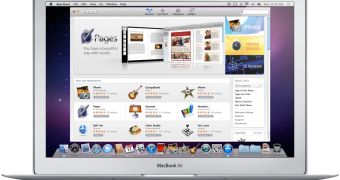To some, Apple’s long term plans are obvious - world domination! Well, as far as computing is concerned, anyway. And who can blame them, after being stabbed in the back by Microsoft when the world didn’t even know it was all about the software.
The Cupertino giant has steadily built what is quite possibly the best business model for a constant growth, even during recession times. How?
With stuff that just works.
Consumers are suckers for products that look good, but even more so when the products that look good also work well.
Apple has both the hardware and the software covered. This allows it to set the price point and, most importantly, the rules.
Just like with the original iPhone App Store, Apple is now attempting to set new rules in place for Mac fanatics, by introducing a brand new version of the popular software marketplace - a Mac App Store!
Why does the Mac App Store translate into new rules, you ask?
For starters, Apple has just informed developers that it wants clean applications, and no demos or trials for now. It wants good quality titles too, ensuring that the experience is flawless.
The Mac App Store wants to be different!
It will not have any fart apps, that much we can say for sure, and it will be the place where Mac owners can download software that has passed through Apple’s net.
However, what many don’t realize is that, besides quality control, Apple will have security control, even if to only some degree.
In a world where cyber threats are on the rise - and don’t think for a second that Mac OS X isn’t vulnerable to attacks - Apple is the one throwing the first blow, by building walls around its ecosystem.
Sure, this will also allow the company to be as arrogant and as self absorbed as always, but you’ve got to have priorities.
a) use products conceived, designed, and assembled by dozens of parties, which results in seams that hackers can inject their code in;
or…
b) use products that are conceived and designed by one company, then assembled by a select few Chinese factories that the respective designer has complete control over.
So, does the Mac App Store make sense?
Yes, for Apple, and for everyone else who wants to hop on board.
With no worthy competitors on the horizon, the only remaining question is: how soon will the whole world go Apple’s way?

 14 DAY TRIAL //
14 DAY TRIAL //